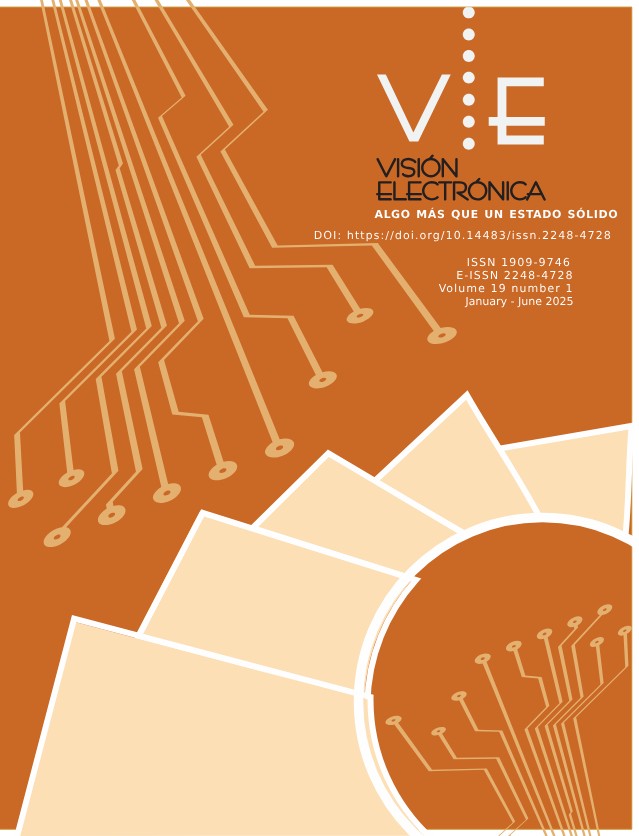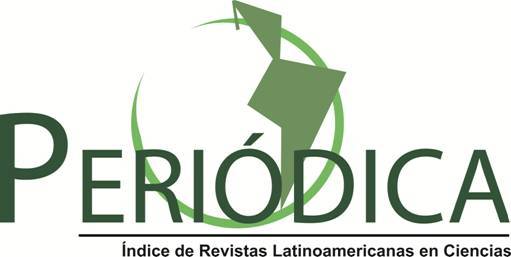Publicado:
2025-06-25Número:
Vol. 19 Núm. 1 (2025)Sección:
Visión de ContextoLa ciencia de datos en la formación de los ingenieros
Data science on engineering training
Palabras clave:
engineering education, data science, curriculum design, data science in engineering (en).Palabras clave:
formación de ingenieros, ciencia de datos, diseño curricular, ciencia de datos en ingeniería. (es).Descargas
Resumen (es)
La formación de ingenieros es vital para el desarrollo tecnológico de un país, al mismo tiempo que la ciencia de datos ocupa un lugar importante en el desarrollo científico. En un primer momento, se abordan los conceptos fundamentales de la ciencia de datos y la formación de ingenieros. En un segundo momento, se explica la importancia de la ciencia de datos en la formación de ingenieros. Por último, se propone un sistema de asignaturas en la malla curricular para formar ingenieros con ciencia de datos. La propuesta debe impactar en la formación de ingenieros más preparados para abordar los problemas profesionales con mayor eficiencia y eficacia.
Resumen (en)
The present study explores the significance of engineering education in the context of a nation's technological advancement, whilst situating data science within the broader framework of scientific development. The study commences with an examination of the foundational principles underpinning data science and engineering education. It subsequently delves into the pivotal role of data science within the educational framework, particularly in the context of engineering. The study proposes a novel curriculum that integrates data science subjects, with the objective of equipping engineers with the necessary skills to address professional challenges with enhanced efficiency and efficacy.
Referencias
S. Nocera, S. Romano, R. Francese, and G. Scanniello, "Software engineering education: Results from a training intervention based on SonarCloud when developing web apps," Journal of Systems and Software, vol. 222, p. 112308, 2025/04/01/ 2025, doi: https://doi.org/10.1016/j.jss.2024.112308.
V. C. Poschauko, E. Kreuzer, M. Hirz, and C. Pacher, "Engineering Education goes Lifelong Learning: Modularized Technical Vocational Education and Training Program for the Automotive Sector," Procedia Computer Science, vol. 232, pp. 1799-1808, 2024/01/01/ 2024, doi: https://doi.org/10.1016/j.procs.2024.02.002.
L. Rendón-Castrillón, M. Ramírez-Carmona, and C. Ocampo-López, "Training strategies from the undergraduate degree in chemical engineering focused on bioprocesses using PBL in the last decade," Education for Chemical Engineers, vol. 44, pp. 104-116, 2023/07/01/ 2023, doi: https://doi.org/10.1016/j.ece.2023.05.008.
V. V. Kumar, D. Carberry, C. Beenfeldt, M. P. Andersson, S. S. Mansouri, and F. Gallucci, "Virtual reality in chemical and biochemical engineering education and training," Education for Chemical Engineers, vol. 36, pp. 143-153, 2021/07/01/ 2021, doi: https://doi.org/10.1016/j.ece.2021.05.002.
L. M. Bland, "Examining The Quality Of Teacher-Selected Social Studies Performance-Based Assessments: A Responsive Evaluation," College of William and Mary, 2022. [Online]. Available: http://oatd.org/oatd/record?record=oai:scholarworks.wm.edu:etd-7306&q=title%3A%28teacher%20AND%20performance%20AND%20evaluation%29
Y. Wang and Y. Ma, "Beyond Physical Space: Using Digital Technology to Support a Collaborative Cultural-Historical Educational Experiment," in Cultural-historical Digital Methodology in Early Childhood Settings: In Times of Change, Innovation and Resilience: Springer, 2024, pp. 39-48.
N. Veresov and N. Veraksa, "Introducing cultural-historical genetic-analytical model for studying child’s play: the matryoshka principle – situations within situations covered by situations," Early Years, pp. 1-13, 2024, doi: 10.1080/09575146.2024.2365180.
W. González Hernández, M. P. Roldán, and M. M. García, "Creative learning in final year students in computer engineering: A case study of the University of Matanzas," Thinking Skills and Creativity, vol. 52, pp. 1-13, 2024, doi: 10.1016/j.tsc.2024.101479.
A. Shekh-Abed, "Metacognitive self-knowledge and cognitive skills in project-based learning of high school electronics students," European Journal of Engineering Education, pp. 1-16, 2024, doi: 10.1080/03043797.2024.2374479.
V. Janštová, E. Kotrčová, and T. Matějková, "Key aspects of successful science fair projects," International Journal of Science Education, pp. 1-17, 2024, doi: 10.1080/09500693.2024.2364956.
W. González Hernández, "Los espacios de aprendizaje y las formas de organización de la enseñanza: una caracterización desde la subjetividad," Revista de Estudios y Experiencias en Educación (REXE), vol. 20, no. 42, pp. 17-27, 2021, doi: 10.21703/rexe.20212042gonzalez18.
B. Zong, J. Li, T. Yuan, J. Wang, and R. Yuan, "Recent progress on machine learning with limited materials data: Using tools from data science and domain knowledge," Journal of Materiomics, 2024/07/26/ 2024, doi: https://doi.org/10.1016/j.jmat.2024.07.002.
D. Bzdok, A. Thieme, O. Levkovskyy, P. Wren, T. Ray, and S. Reddy, "Data science opportunities of large language models for neuroscience and biomedicine," Neuron, vol. 112, no. 5, pp. 698-717, 2024/03/06/ 2024, doi: https://doi.org/10.1016/j.neuron.2024.01.016.
J. Southworth et al., "Developing a model for AI Across the curriculum: Transforming the higher education landscape via innovation in AI literacy," Computers and Education: Artificial Intelligence, vol. 4, p. 100127, 2023/01/01/ 2023, doi: https://doi.org/10.1016/j.caeai.2023.100127.
Cómo citar
APA
ACM
ACS
ABNT
Chicago
Harvard
IEEE
MLA
Turabian
Vancouver
Descargar cita
Visitas
Descargas
Licencia
Derechos de autor 2025 Visión electrónica

Esta obra está bajo una licencia internacional Creative Commons Atribución-NoComercial 4.0.
.png)
atribución- no comercial 4.0 International






.jpg)





